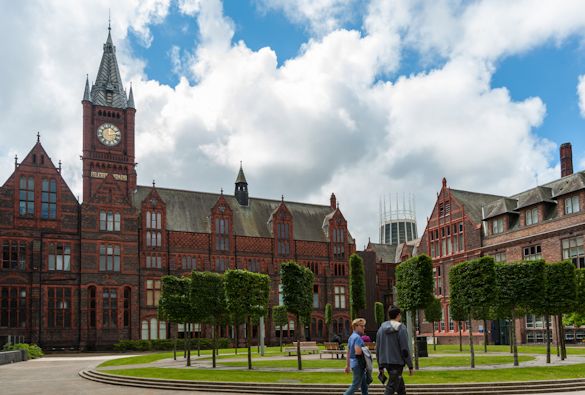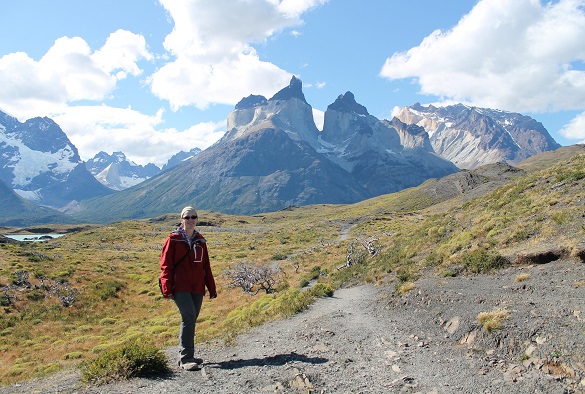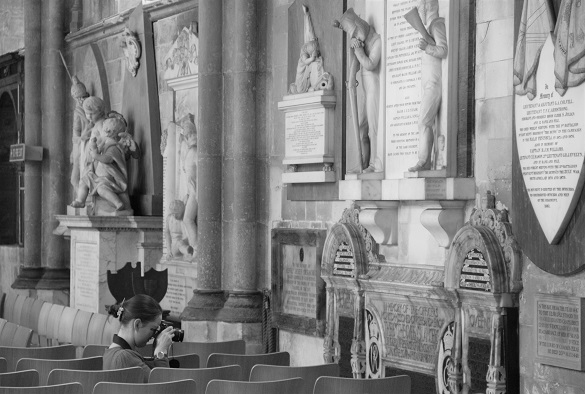
Two Liverpool researchers are part of a new generation of rising stars supported by the UK Research and Innovation’s (UKRI) Future Leaders Fellowships scheme to tackle pressing global challenges.
Liverpool volcanologist, Dr Janine Kavanagh, and archaeologist, Dr Ruth Nugent, are part of the latest wave of researchers supported by the UKRI scheme which provides funding, flexibility and time to take forward challenging questions.
Dr Janine Kavanagh
Dr Janine Kavanagh (below) specialises in understanding the development and evolution of volcanic plumbing systems.
The overall goal of her Fellowship is to develop new methodologies to help forecast and assess the danger posed by volcanic eruptions in order to significantly minimise their human and economic cost.
Existing models of magma sub-surface flow struggle to resolve important information which would allow for rapid and reliable decision making in the lead up to and during volcanic crises.

Dr Kavanagh will build on her track record of developing novel methodologies and use her multidisciplinary expertise in volcanic plumbing systems to integrate analogue modelling, mathematical modelling, geophysical observations and geological analyses of volcanic systems to build the next generation of magma-filled fracture models.
She will work with academic and government partners to develop new models and use recent data from volcano and space observatories to test and develop them so they can be integrated into volcanic warning systems.
Dr Ruth Nugent
Dr Ruth Nugent (below) is an archaeologist specialising in Britain’s mortuary cultures from the 5th century AD onwards, with a particular interest in the inherited dead.
Dr Nugent’s Fellowship will examine the history of exhumation of the historic dead. She will address key questions including: When did study of the long-dead emerge; what did ‘respectful treatment’ of exhumed dead mean over time; and, as pressure increases on historic church burial grounds, how should archaeologists exhume, study, rebury or store the Christian dead, especially when conflicting beliefs may be involved?

Dr Nugent will work with churches, policymakers, scholars, public groups, and exhumation specialists to create the first-ever digital research library of historic exhumations from the 7th- 19th centuries and a unique research-practice network. This cross-sector resource will investigate these questions and help inform how historic burial grounds and churchyards are managed at this vital time.
Announcing the awards, Universities Minister Chris Skidmore said: “Research and innovation is vital to ensure the UK remains at the forefront of major scientific breakthroughs. In order to realise the full potential of these discoveries, big ideas need to be taken out of the lab and turned into real products and services, so they can actually change people’s lives.
“Our £98 million investment will help both SMEs and researchers to take their innovations from lab to market and keep the UK economy thriving into the future.
“We’re totally committed to keeping the UK at the forefront of scientific innovation and discoveries, ensuring we remain a global science superpower. Our investment is part of a wider commitment to invest at least 2.4% of GDP in R&D – our biggest investment in R&D in UK history.”
Professor Sir Mark Walport, UK Research and Innovation’s Chief Executive, said: “The Future Leaders Fellowships will enable the most promising researchers and innovators to become leaders in their fields, working on subjects as diverse as climate change, dementia and quantum computing.
“UKRI is committed to creating modern research and innovation careers and our Future Leaders Fellowships aim to support and retain the most talented people, including those with flexible career paths.”